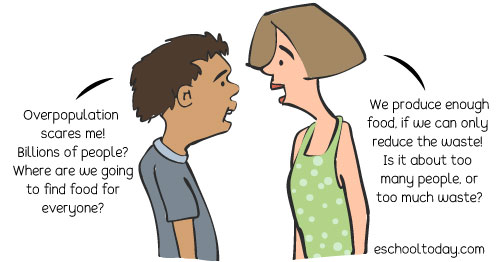- Overpopulation
What is overpopulation?
Overpopulation is a situation where there are too many people living in a given location than economic resources and natural resources can sustain. It is not determined by a specific number, but rather by the relationship between the inhabitants and the resources available. Before discussing overpopulation, it is essential to understand the term “population.”
Population can be explained as the total number of individuals of a species in a particular geographical area over a given period. Time is an important concept in this subject. This concept applies to all living species, including humans, trees, birds, and algae. For instance, the human population of Ohio was 11.78 million in 2023, and the population of young bald eagles in Ohio was 327 in 2016. According to the US Census Bureau, the world population in 2022 was 8 billion.

Overpopulation is not just about the number of people living in a location, but also the ratio of people to the available sustainable resources in that location. Some people argue that overpopulation is not a problem because the earth has enough resources, while others believe that as populations increase, the earth’s resources will become insufficient to sustain everyone. Unfortunately, humans tend to consume more from the earth than they give back. We cut down more trees than we plant, and we rely heavily on new raw materials instead of recycling, reusing, and reducing our dependence on them. This pattern of overconsumption, overuse, misuse, and wastage of resources has reduced the earth’s carrying capacity. The effects of overpopulation on the earth’s land, water bodies, atmosphere, and ecosystems can have local and global impacts. For instance, pollutants can travel thousands of miles across the seas, causing harm to other areas.
Is your city, town, or country overpopulated? If so, what problems does it bring, and are there any advantages to being overpopulated?
